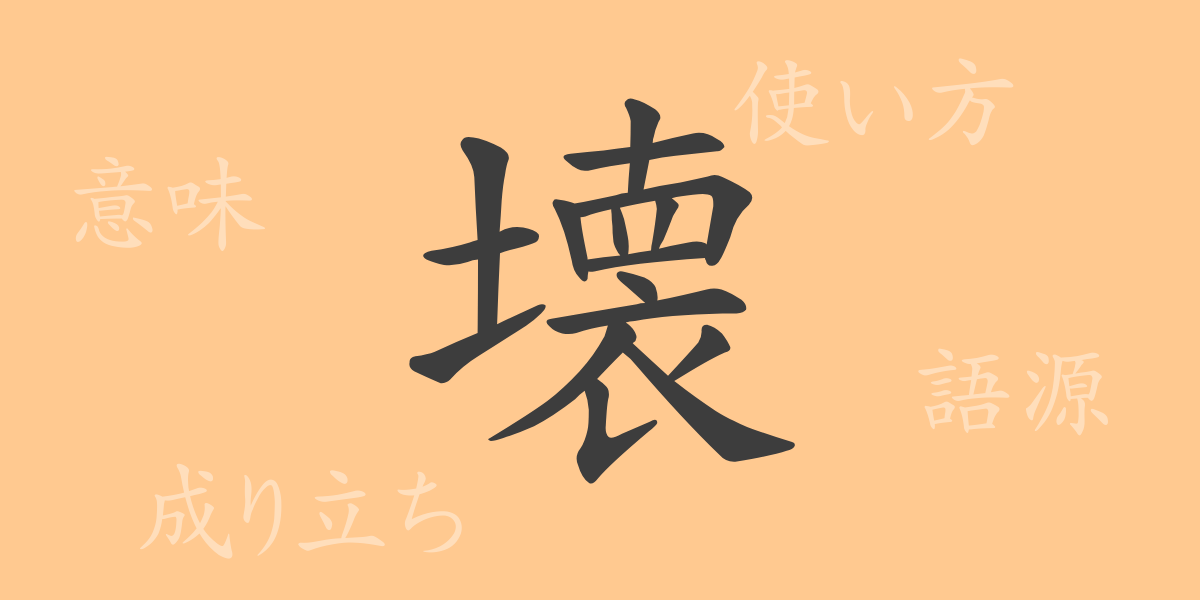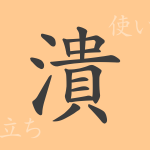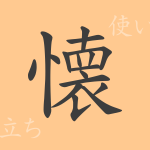Characters are a treasure trove of culture and history, with each one carrying deep meanings and origins. One of Japan’s commonly used kanji, “壊” (Kai), is no exception. This kanji, often encountered in everyday life, symbolizes change and destruction, and is used in various contexts. In this article, we will delve into the etymology of “壊” (Kai), its meanings, usages, and related idioms and phrases, providing a detailed explanation.
Etymology of 壊 (Kai)
The kanji “壊” (Kai) evolved from ancient characters that depicted the act of breaking a wall. Originally, it showed a hand digging out the earth that makes up a wall, and later transformed to represent the image of a wall collapsing. In this way, “壊” (Kai) literally derived from the meaning of “breaking a wall,” and came to signify the breaking or destruction of things.
Meaning and Usage of 壊 (Kai)
“壊” (Kai) carries the basic meanings of “to break” (Kowa-su) and “to be broken” (Kowa-reru). It refers to the act of physically destroying something or the state of an object being broken and no longer functioning. Metaphorically, it also represents the breakdown of organizations or systems, as well as the deterioration of health. Commonly, it is used in various compound words such as “壊滅” (Kaimetsu, annihilation) and “壊死” (Esu, necrosis).
Readings, Stroke Count, and Radical of 壊 (Kai)
Details on the readings, stroke count, and radical of the kanji “壊” (Kai) are as follows:
- Readings: The on’yomi (Chinese reading) is “かい” (Kai), and the kun’yomi (Japanese reading) is “こわ.す” (Kowa-su) and “こわ.れる” (Kowa-reru).
- Stroke Count: “壊” (Kai) has a total of 18 strokes.
- Radical: The radical of “壊” (Kai) is “土” (Tsuchi, earth), but “壊” (Kai) itself is also used as a radical.
Idioms, Phrases, and Proverbs Using 壊 (Kai) and Their Meanings
There are numerous idioms, phrases, and proverbs that include “壊” (Kai), each with its unique meaning and usage. For instance, expressions such as “壊滅” (Kaimetsu, to completely destroy), “心を壊す” (Kokoro- wo- kowa-su, to mentally corner someone), and “家計を壊す” (Kakei- wo- kowa-su, to ruin the household finances) mean “to completely destroy,” “to mentally break down,” and “to disrupt the household finances,” respectively. These expressions are widely used in everyday conversation, literature, and the business world.
Conclusion on 壊 (Kai)
The kanji “壊” (Kai), as its form suggests, signifies the act of breaking or being broken, and it is utilized in many idioms and phrases. The use of “壊” (Kai) in the Japanese language expresses not only physical destruction but also the collapse of abstract concepts, allowing us to appreciate the depth of the language. Through this article, we hope you have gained some insight into the culture and history behind the kanji “壊” (Kai).

























